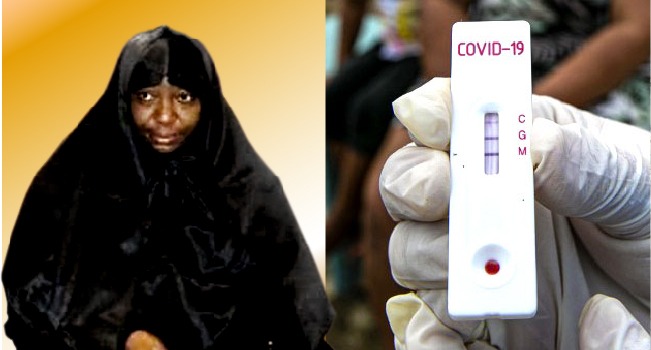
Nigeria: High Court Orders Relocation of Zakzaky’s Wife Zeenat to Isolation Centre
A Kaduna State High Court has ordered the state Correctional Centre to move the wife of the leader of the Islamic Movement in Nigeria (IMN) also known as Shiite, Zeenat El-Zakzaky, to a government isolation centre to commence treatment for COVID-19.
The court, presided by Justice Gideon Kurada, issued the order at the resume trial of the IMN leader and his wife yesterday.
The duo has been in detention since December 2015 following clashes between IMN members and soldiers in Zaria, Kaduna State.
The IMN leader and his wife are being prosecuted by the state government for alleged culpable homicide, unlawful assembly among others.
Mrs. Zeenat, El-zakzaky’s son, Mohammed, in a statement issued last Thursday said his mother had tested positive for COVID-19 at the Kaduna Correctional Centre, where they are being detained.
He also alleged that the prison authorities refused to release his mother for treatment.
However, at the resumed trial yesterday, counsel to the accused persons, Femi Falana (SAN), told the court that Mrs. El-Zakzaky has tested positive for COVID-19, and presented a medical report to prove it.
Falana appealed to the court to allow his client to seek proper medical treatment outside the Correctional Centre in line with the protocols that have been outlined by the Nigerian Centre for Disease Control (NCDC).
However, the prosecuting counsel, who is the Solicitor-General of the state, Mr. Chris Umar, did not object to Falana’s appeal.
In his ruling, Kurada ordered that Mrs. Elzakzaky should be immediately moved to a government-approved isolation and treatment centre.
Four witnesses were presented in court by the prosecuting counsel.
More witnesses, including a General Officer Commanding (GOC) of the Nigerian Army serving in the North-east region, are expected to testify before the court in continuation of the trial today.
As usual, all roads through the vicinity of the high court complex were blocked, causing traffic gridlock as motorists had to divert to alternative routes. Journalists were also not allowed into the court premises.

